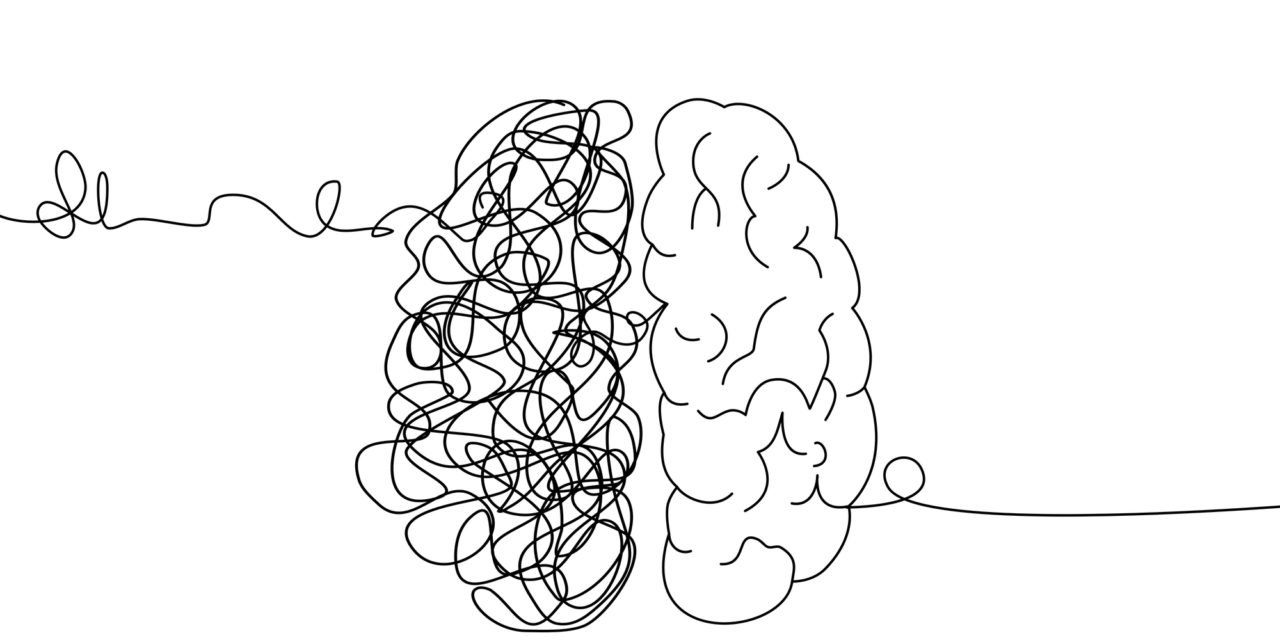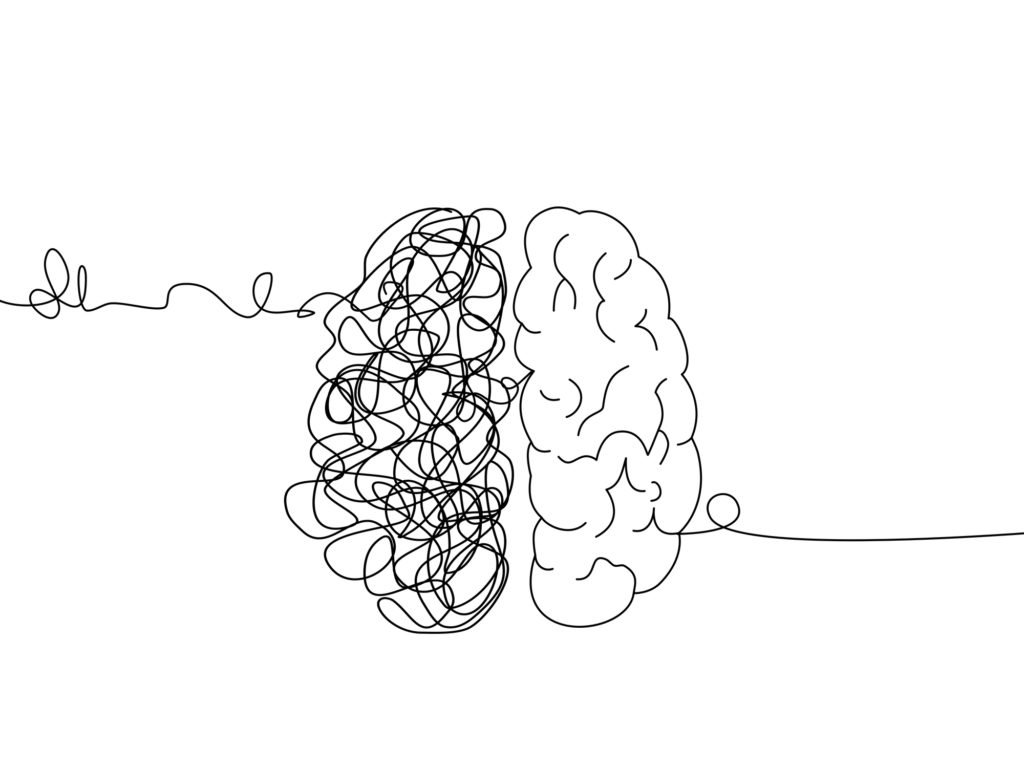While we are seeing a bigger emphasis on rest and self-care, I am not sure we are entirely aware of or prepared for the impacts of the last few years on mental health. The isolation and fear around COVID-19, the violent racism and xenophobia, the economic uncertainty, and the constant pushback to progress have altered individuals and society in ways that we will not fully realize for years. As Mental Health Awareness Month approaches in May, it is time that we have a conversation around the impacts that navigating the VUCA (volatile, uncertain, complex, ambiguous) world has on mental health.
Isolation and fear around COVID-19, the violent racism and xenophobia, the economic uncertainty, and the constant pushback to progress have altered individuals and society in ways that we will not fully realize for years. Click To TweetI think it is safe to say that we have all felt tired or scared at some point since 2020. The World Health Organization found that the pandemic has caused psychological harms that will play out over years to come. In the first year of the pandemic alone, the global prevalence of anxiety and depression increased by 25%. Young people, women, BIPOC communities, and those with pre-existing health conditions disproportionately experienced the impact of this. A survey by Northeastern, Harvard, Rutgers, and Northwestern Universities found that in young American adults aged 18-24, reports of anxiety and depression were at 56%, and 39.6% reported suicidal thoughts in 2021, compared to 3.4% in 2014. Women with children are more likely to have anxiety and depressive disorders than men with children (49% vs 40%). Black adults reported symptoms of anxiety and depressive disorders at 48%, Hispanic adults at 46%, and white adults at 41%.
These mental health issues outlast the physical impacts. For example, a 2020 study published in the peer-reviewed journal The BMJ found that the psychological distress healthcare workers experienced during the height of the pandemic will likely last for three years. Another 2020 study from the Kaiser Family Foundation projects that “based on the economic downturn and social isolation, additional deaths due to suicide and alcohol or drug misuse may occur by 2029.” The self-care movement of doing face masks and taking baths will not solve this issue. We need to prioritize mental health and access to care.
'Based on the economic downturn and social isolation, additional deaths due to suicide and alcohol or drug misuse may occur by 2029.' The self-care movement of doing face masks and taking baths will not solve this issue. Click To TweetI write this not because I have the answers to how we can do this, but because I hope to increase awareness about mental illnesses and encourage the conversation. The way mental illness shows up in this VUCA world can be much different than what it looked like before.
For example, my own experience with my mental health has changed over these last few years. As I committed this year to start taking my mental health seriously, I realized that much of my current anxiety and depression is a result of the last two years. I am a young, healthy adult with a stable job, so I am grateful to not have experienced the same level of fear as others. However, being inside 24/7 in a new city I had just moved to months before the pandemic, compounded with rising costs of living and horrific news day after day, I had nowhere to be but inside my own head. I also work in DEIJ managing social media, meaning it is my job to be online, reading and responding to news events. Everything felt heavy, like we could not find the light at the end of the tunnel.
Being inside 24/7 in a new city, compounded with rising costs of living and horrific news day after day over the last two years, I had nowhere to be but inside my own head. Everything felt heavy. Click To TweetIn experiencing this, I was able to easily “explain away” many of my symptoms. My jaw was always clenched and sore, but I have to get my wisdom teeth removed, so it was probably just that. I woke up every two hours at night, but my mind is always racing being a full-time employee and grad student, so it was probably just that. My chest was so tight I felt like I could not breathe, but I consume too much caffeine, so it was probably just that. I felt disassociated from everything, but I was doing so much at once and could not focus my energy on one single thing, so it was probably just that. I was in a fog I could not see past and going through the motions simply to get through the day. It was not until I began paying attention to my mental health that the dots connected.
Understanding that you have a mental illness can be — in the simplest terms — a lot. There is a lot of sadness, fear, and worry. For me, I also learned that these things I was experiencing were not just who I am or what my personality is. It was a result of anxiety and depression, and it could be changed. I found a great deal of validation, comfort, hope, and relief in that.
So, while we may associate depression with sadness and anxiety with worry, consider these other ways mental illness can show up in this VUCA world:
- Loss of sense of self
- Excessive shame or guilt
- Mental exhaustion
- Apathy
- Disassociation (which can show up as feeling unfamiliar with your surroundings, feeling disconnected from other people and your own mind/body/spirit, feeling like you are outside your body, feeling detached from your emotions, feeling as though the world is not real)
- Persistent unease, tension, irritability
- Inability to pay attention
- Having thoughts feel fuzzy or clouded over
- Intrusive thoughts and ruminations (like returning to the same loop of thoughts over and over again)
- Perfectionism
- Vague feelings of doom or danger, rather than specific fears
- Jaw pain and/or teeth grinding
- Muscle tension
- Headaches and dizziness
- Chest pains
- Shortness of breath
- Drastic changes in appetite
This is by no means a comprehensive list. It is just a way to offer that what you think mental illness can look like or what it may have looked like for you in the past might show up entirely differently in this VUCA world. As I mentioned, I do not have the answers for how to solve the world’s mental illnesses, but I can offer you what has worked for me during this time.
My biggest piece of advice: Carve out time for yourself and incorporate it as a habit in your routine.
The advice on mental health is often to make time for self-care. This is nice and certainly true but not entirely helpful for people with anxiety or other mental illnesses. I know that I need to take care of myself, but the exhaustion, the disassociation, the apathy, etc. make that really difficult.
The advice on mental health is often to make time for self-care. This is not helpful for people with mental illnesses. I know that I need to take care of myself, but the exhaustion, disassociation, apathy, etc. make that difficult. Click To TweetI find that it helps me to have structures in place to manage my anxiety and depression and find pockets in the day to devote to this. Of course, there is quite a bit of unlearning to do so that joy and rest come more naturally, but while I do that, I do not need to work against myself.
Exercising every morning, for example, is very important to me. So, it became a non-negotiable. I plan other things around it, whether that is asking my partner to walk the dog in the morning or scheduling meetings after a certain time. I also literally set reminders on my phone to unclench my jaw, to get up from my desk, or to read a book for 20 minutes. Sometimes the response from people is, “You really have to remind yourself to take care of yourself?” Yes, I do. Otherwise, I start simply going through the motions again.
I am very intentional in my daily routine because it brings me a sense of calm to know what I am going to do the next day, including the good things I can look forward to and the not-so-good things I can prepare myself for. I put actions to take care of myself in my schedule and adapt my routine to them so that those actions are non-negotiable and unavoidable. This provides me the light in the tunnel that I was previously searching to find.
I am very intentional in my daily routine because it brings a sense of calm to know what I am going to do the next day, including the good things to look forward to and the not-so-good things to prepare for. Click To TweetSo, while it might seem ridiculous at first to set reminders, to block out time on your work calendar, or to rearrange some meetings to give yourself time for whatever it is you need to do – you must do it. As Mary-Frances Winters wrote earlier in this series, “We are living in extremely trying times that call for radically different approaches to stay whole and healthy.”
Find realistic ways to take care of yourself.
Self-care may look like pampering yourself, but I often find those pieces of advice to feel more like a Band-Aid than anything else. I feel good for an hour or two and then I am back in the thick of it all again. Instead, it has been helpful to practice realistic self-care, inspired by therapist Meghan Watson whom I found on Instagram @thrive_withmeg. She suggests that “more often [self-care] is about attending to the important care tasks that need your attention.” Below are a few of her suggestions, along with others I keep in my tool kit:
- Declutter your immediate spaces. This does not have to be a deep clean; just enough to make you feel better, like putting the dishes away, picking up the coffee or tea mugs you left around, or going through the stack of junk mail.
- Clean up your inbox or reorganize your desktop. If you are anything like me, you just keep deleting the marketing emails you no longer want to receive, rather than finally unsubscribing to them. Try unsubscribing to 15 of your latest ones, and maybe organize your desktop documents to be more easily accessible.
- Focus on your five senses. Watson wrote, “Powerful (and realistic) self-care starts with a connection to your five senses. Your body is always with you — tap into that natural resource!” Do something to connect with your body through touch, taste, sight, smell, and sound.
- Complete an annual money review or prepare a financial plan. Watson offers that we often avoid looking at our finances out of fear and anxiety. Realistic self-care means addressing this before it gets to be too overwhelming. Again, no need to work against your mental illness.
- Respond to the emails and texts you have been avoiding. This is similar to the previous suggestion. Sometimes self-care does not feel so good at first, but it is a relief to attend to the things that need your attention before they get too big.
- Go back to the basics — food, water, sleep, movement. When you feel yourself slipping with your mental health or have some of the symptoms listed above, ensure first and foremost that your basic needs are covered. Get some sleep, eat a nourishing meal, drink your water, and give your body some movement, however that looks for you.
- Get dressed up for the day, especially if you work from home. My work-from-home wardrobe is a rotation of sweatshirts, so I get it. However, I encourage you to get ready for the day and put on a nice outfit every once in a while. Whenever I notice any of the above symptoms, I put on my favorite pair of jeans (which is considered dressing up after the last two years of being in athleisure), wear some jewelry, and do a whole glittery makeup look — for no reason and no one else but myself. I always underestimate how good getting ready makes me feel and how capable I feel to tackle the day.
- Make a “reset” routine. Pay attention to the warning signs of your own mental health. Perhaps you start to notice that you are feeling easily frustrated again, not sleeping or eating regularly, becoming distracted all day, etc. Your “reset” routine is three or four actions you can fall back on to reset yourself. For example, I close all my devices, take my dog on a walk, do 90 seconds of deep breathing, and take a shower. These simple actions help ground me before I get too overwhelmed.
Seek professional help.
You can only self-care your way through so many things. Sometimes we need professional help, whether that is therapy, medication, or a combination of the two. There are websites that give you the ability to access a therapist and psychiatrist online, and even get medication delivered to your doorstep. Some of these sites may accept your insurance, and others are less than $100 per month without insurance.
Medication can be a controversial and intimidating topic because we have been taught that only “crazy” people need it. This could not be more wrong. For me, medication has not made my struggles disappear, but it helped build a floor beneath me so that I can stand on my own. I stopped free-falling and could find solutions that worked so that I (not medication nor therapists) can build a stable, happy life for myself.
Medication can be a controversial and intimidating topic because we have been taught that only 'crazy' people need it. This could not be more wrong. It helped build a floor beneath me so that I can stand on my own. Click To TweetAs we enter Mental Health Awareness Month, start reflecting on how your own mental health has changed over the last few years. How mental illness showed up for you three years ago might be entirely different than in today’s VUCA world, and how you cope with and heal from that will be different too.
This #MentalHealthAwarenessMonth, reflect on how your own mental health has changed over the last few years. How mental illness showed up three years ago might be entirely different than in today’s VUCA world. Click To TweetI encourage you to read Crystal Bennett’s post on The Myth of Resilience in which she offered the “self-care iceberg,” showing what we think self-care looks like (spa days and massages) vs. what it actually looks like (inner child healing, community care, purging negativity, acts of resistance, etc.). For advice on how you can prioritize mental health and wellbeing within your organizations, I suggest Thamara Subramanian’s advice, including making PTO mandatory, offering parental sabbaticals, and increasing base pay instead of wellness benefits. And to challenge your own patterns of thinking around this topic, consider Brittany J. Harris’ questions on how we can redefine boundaries, self-care, and commitment by our own standards.




















